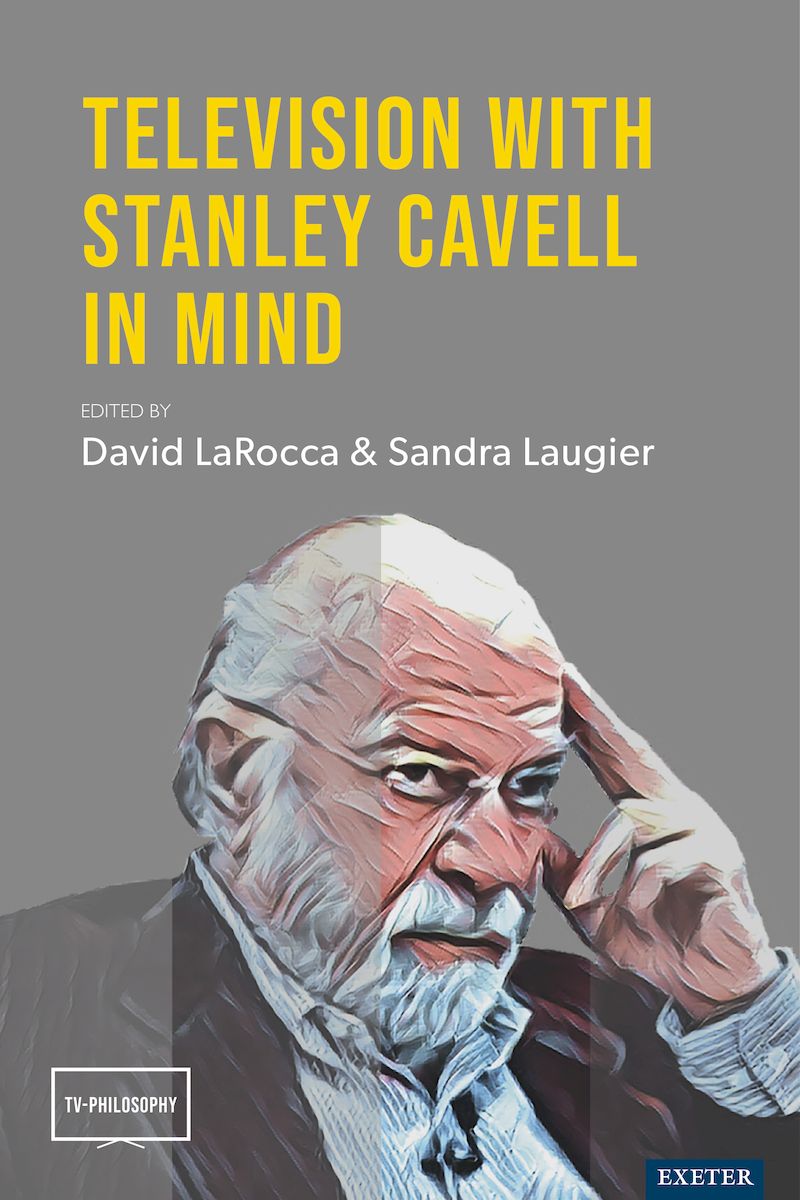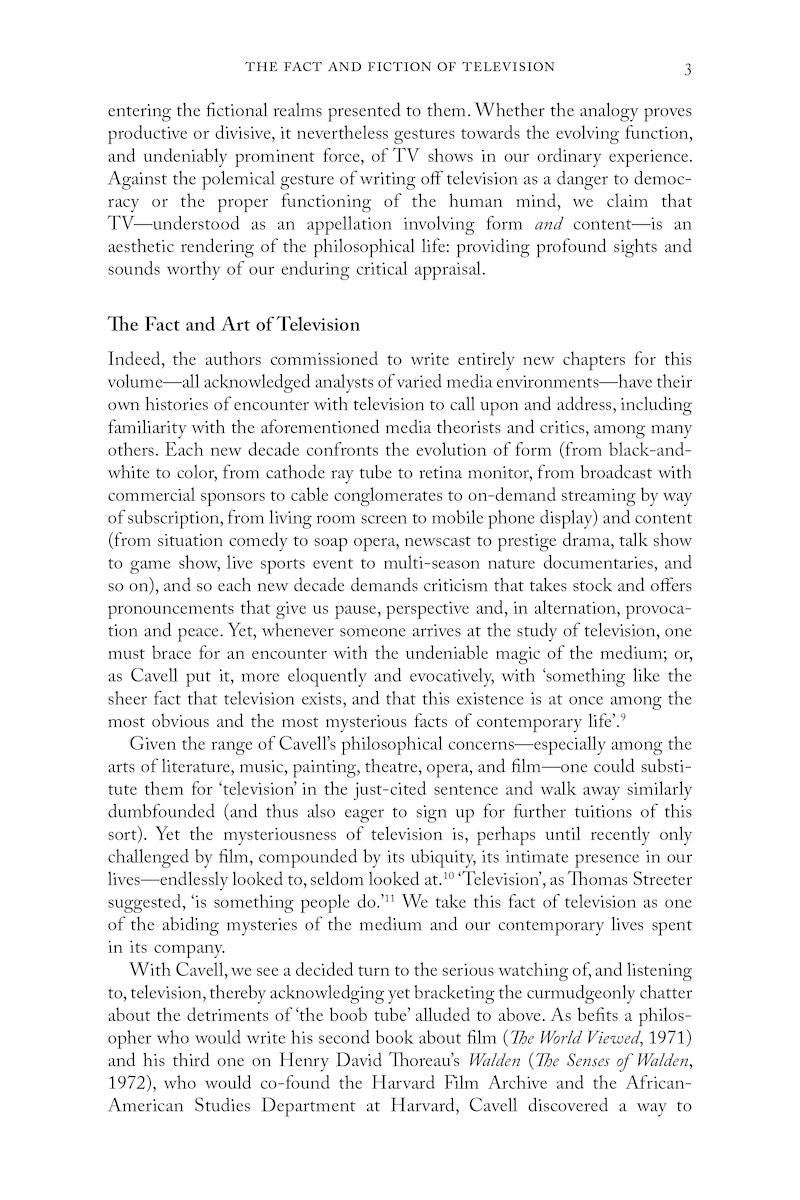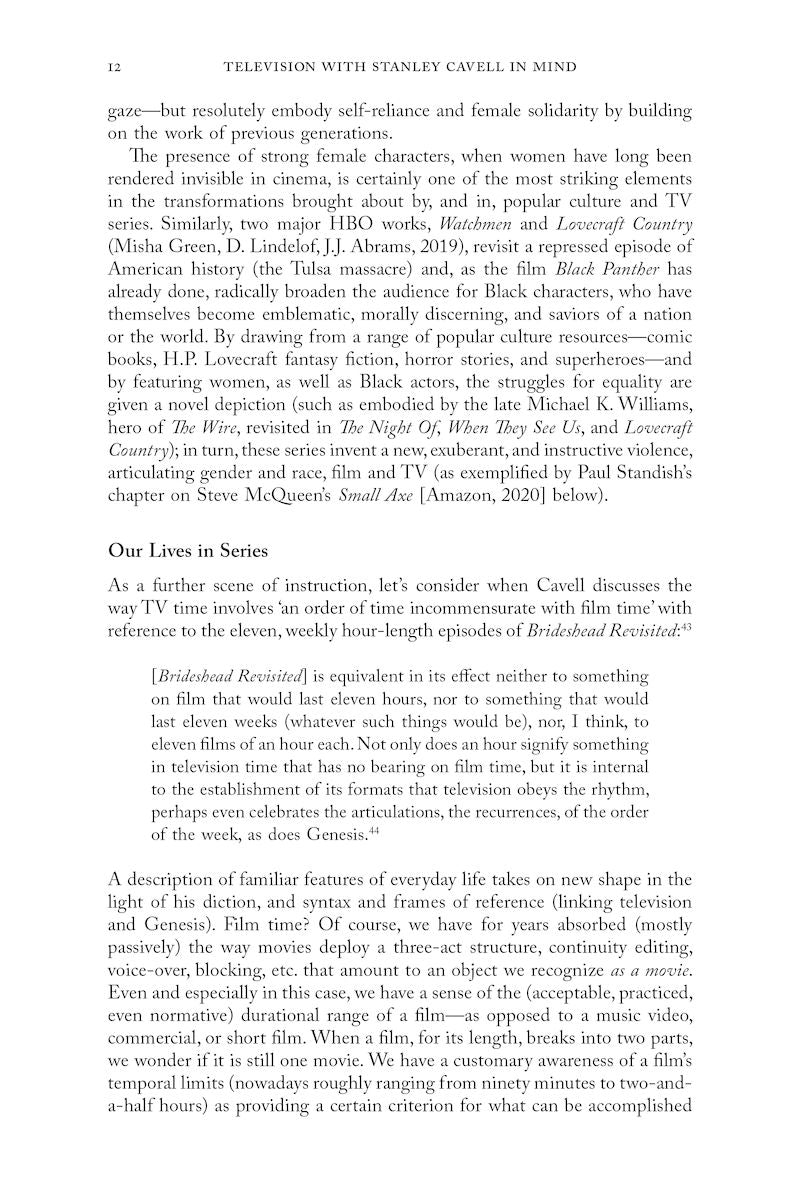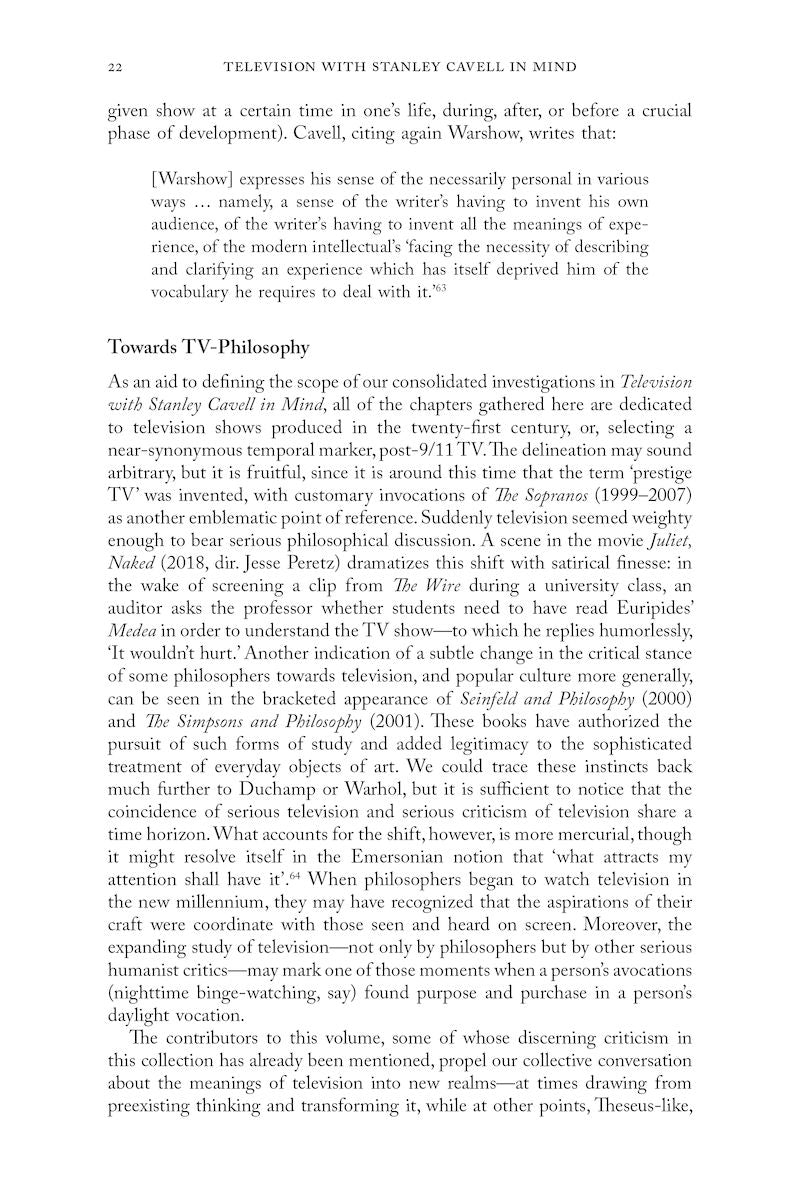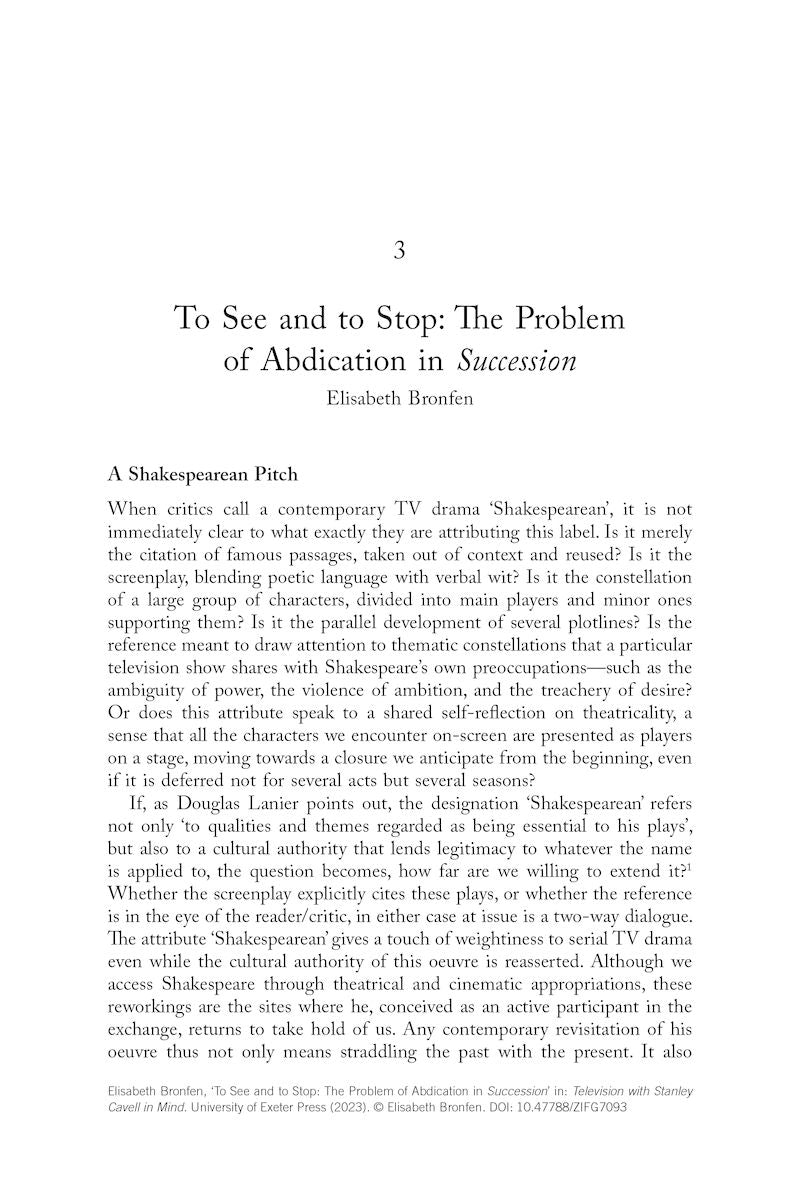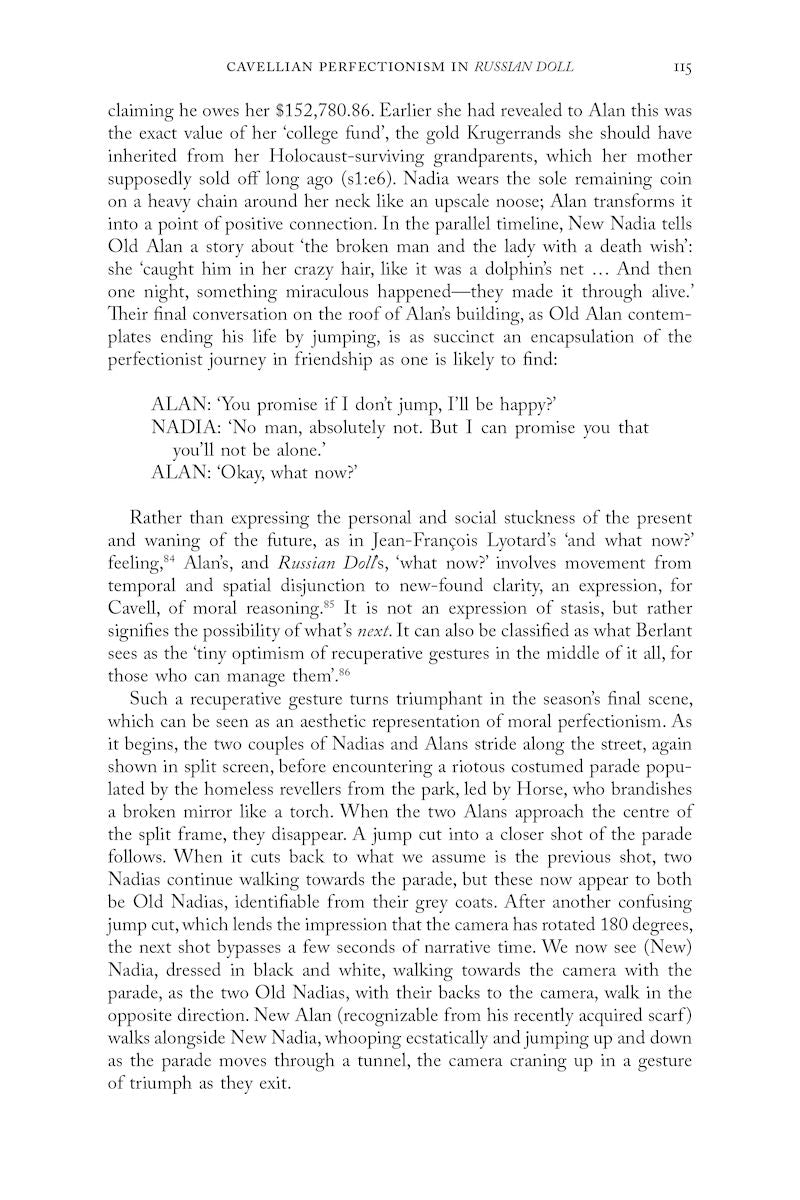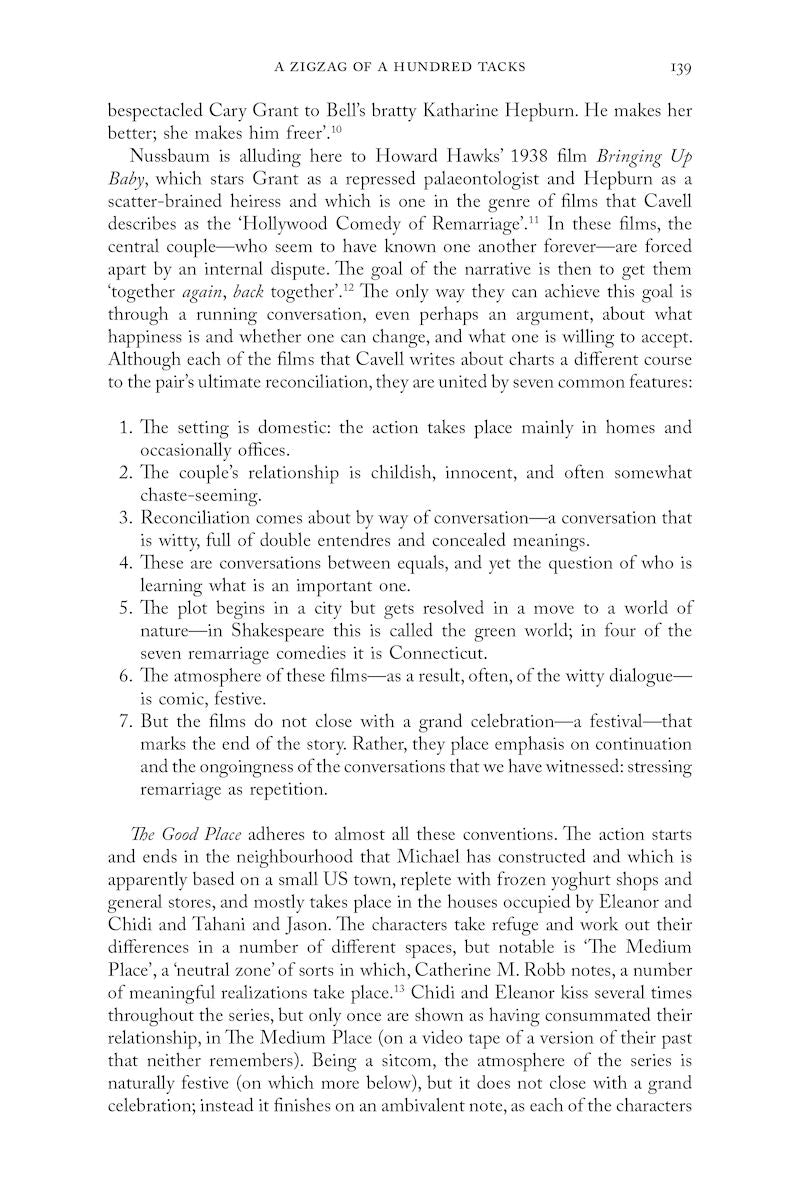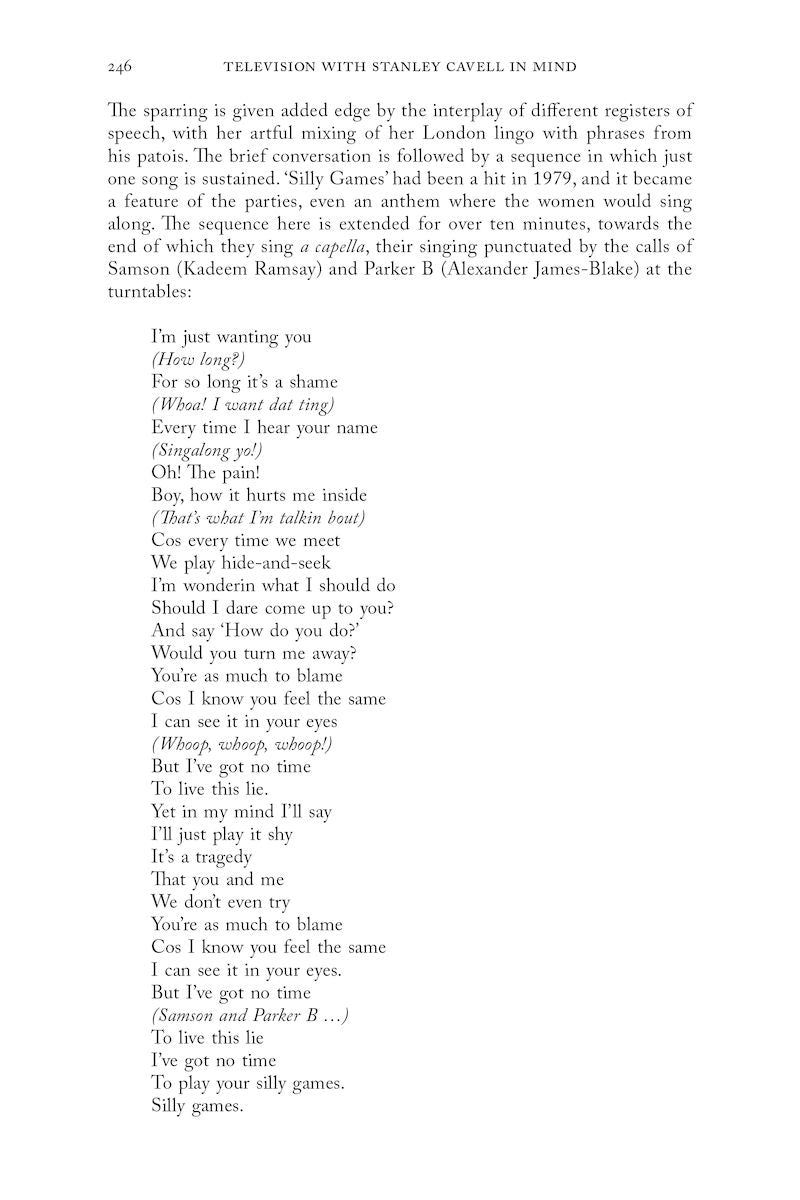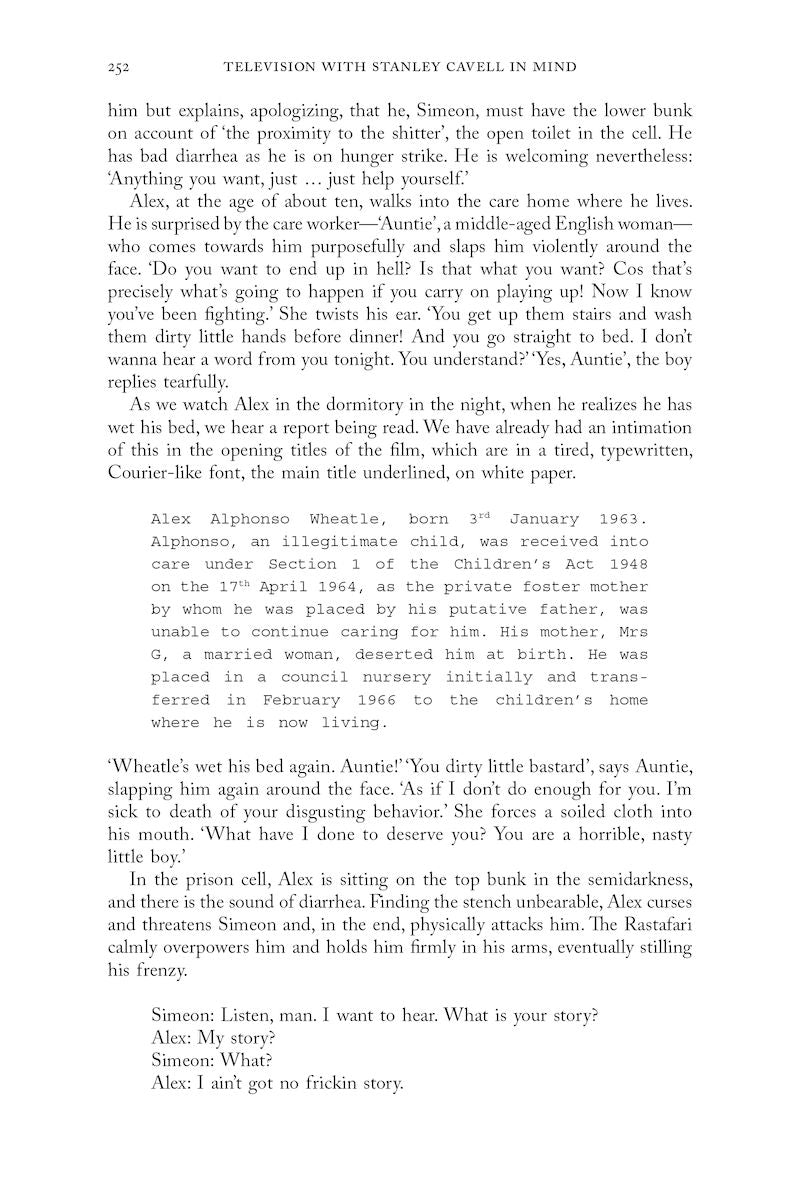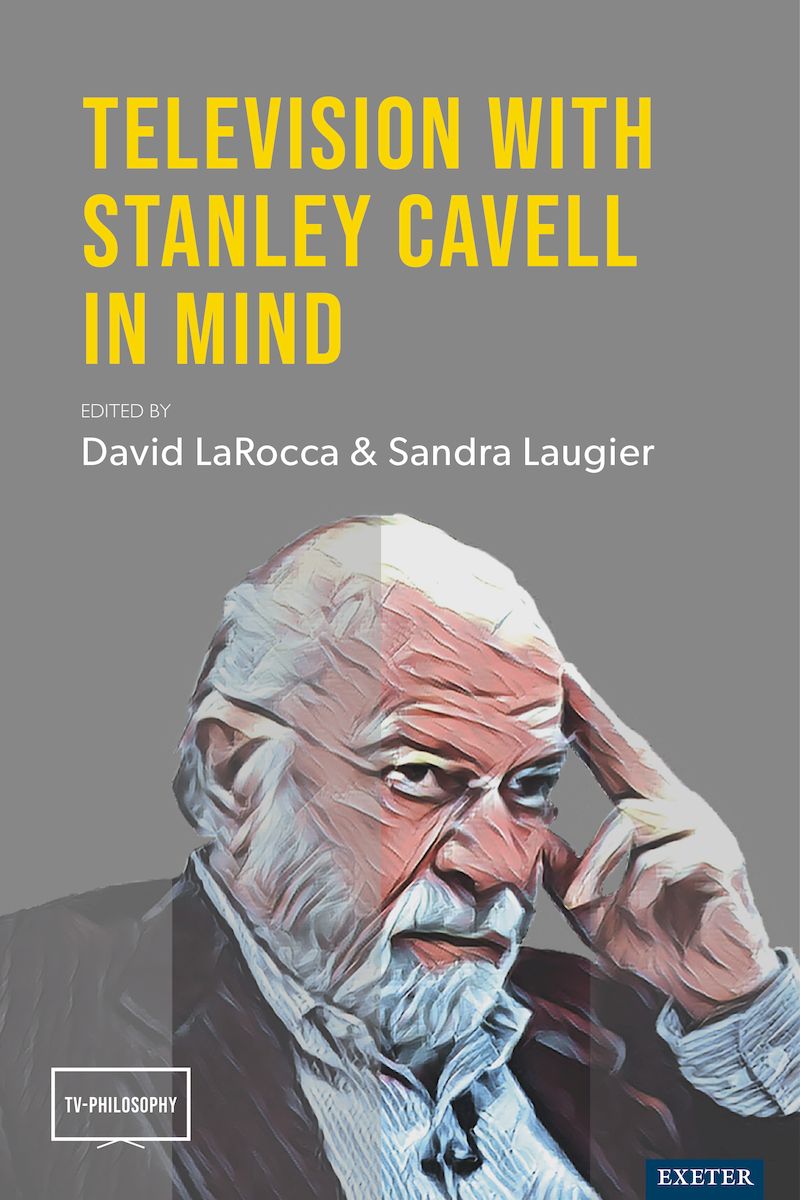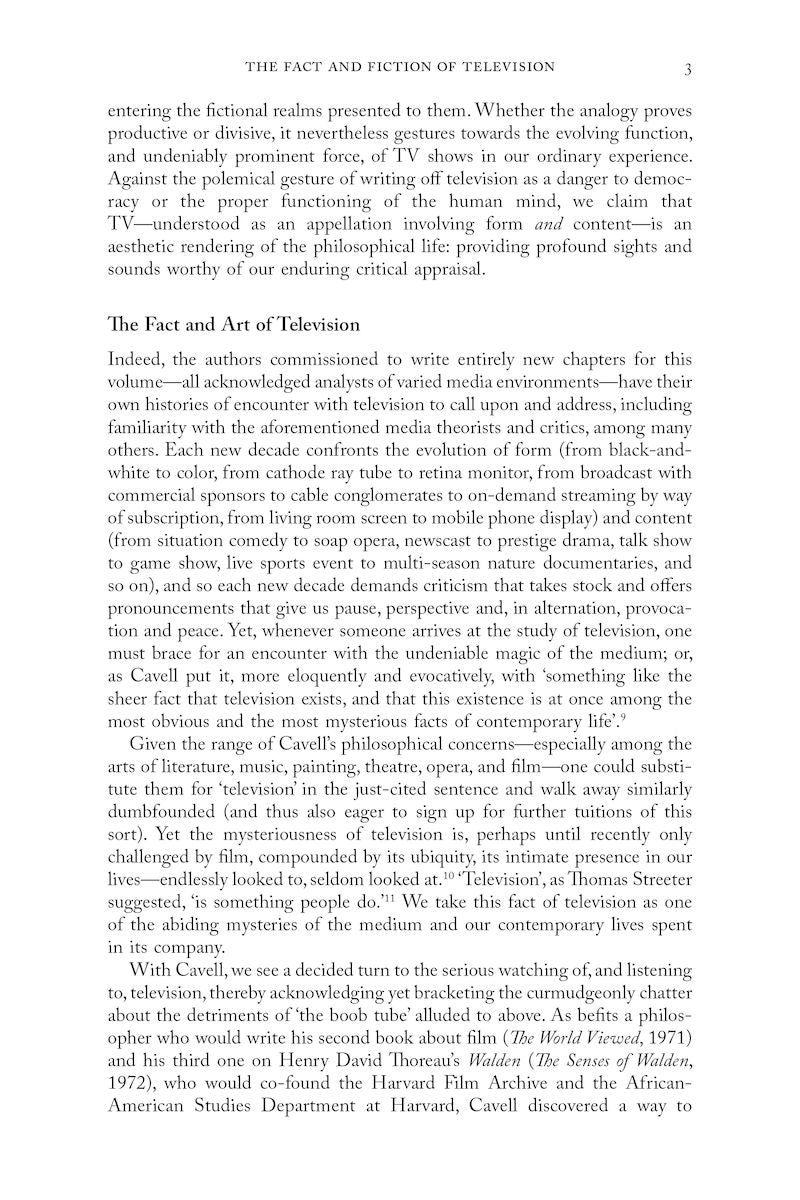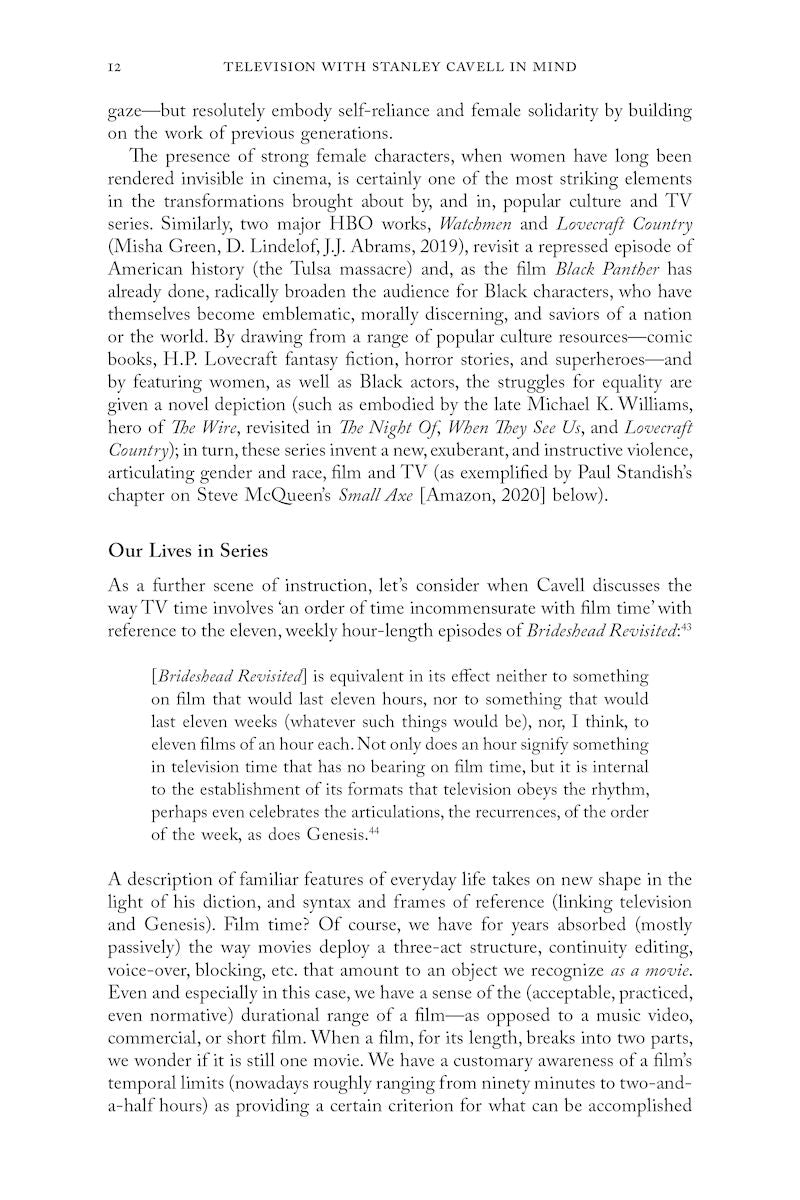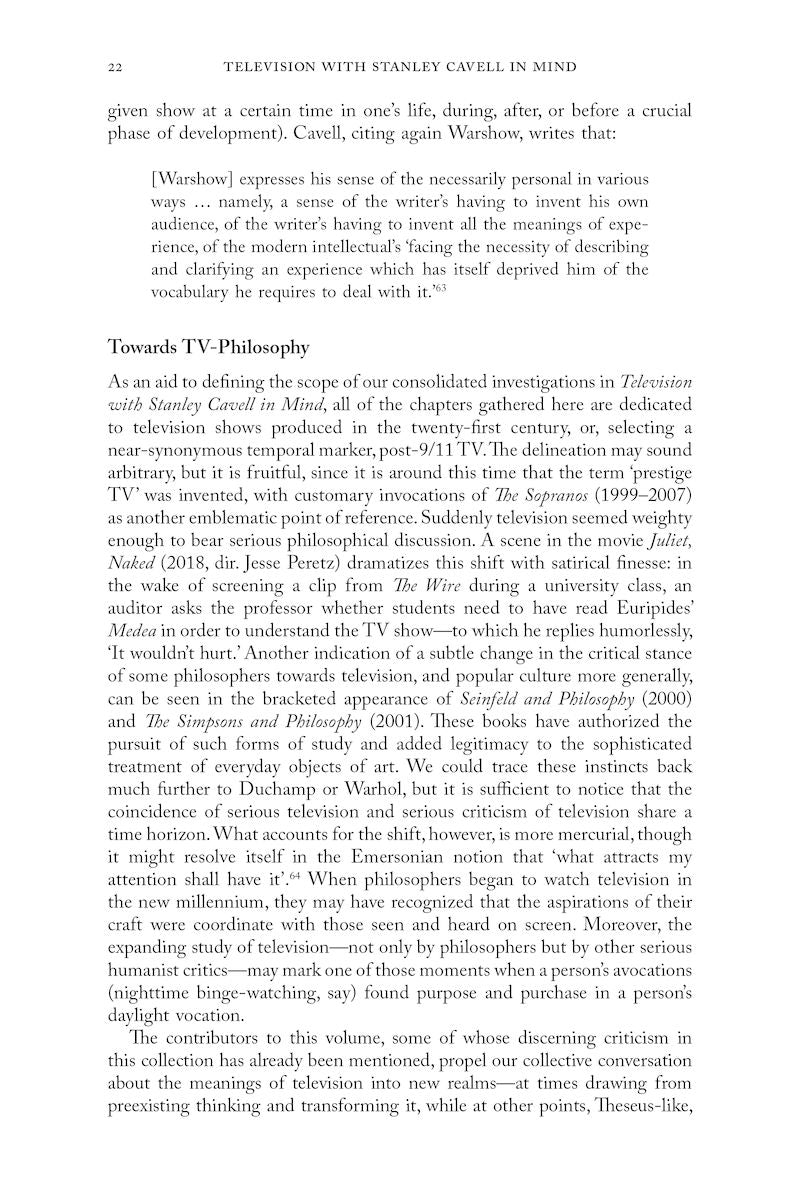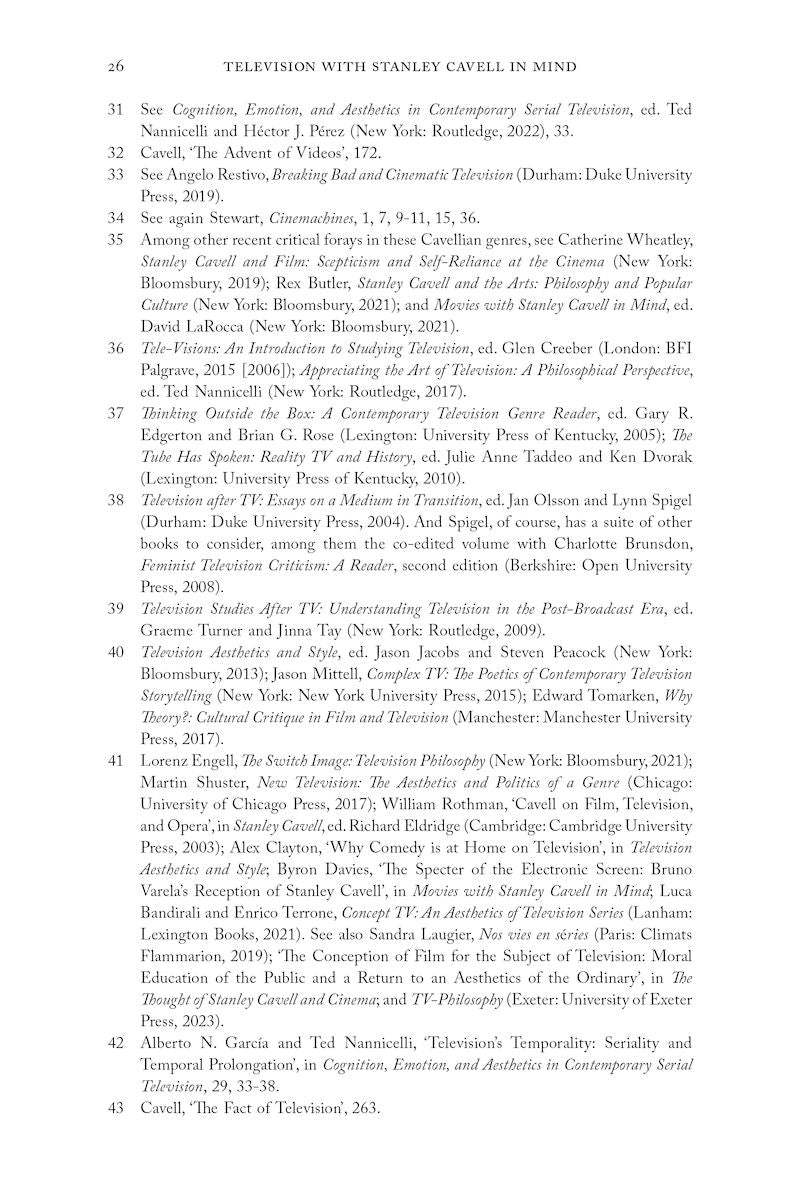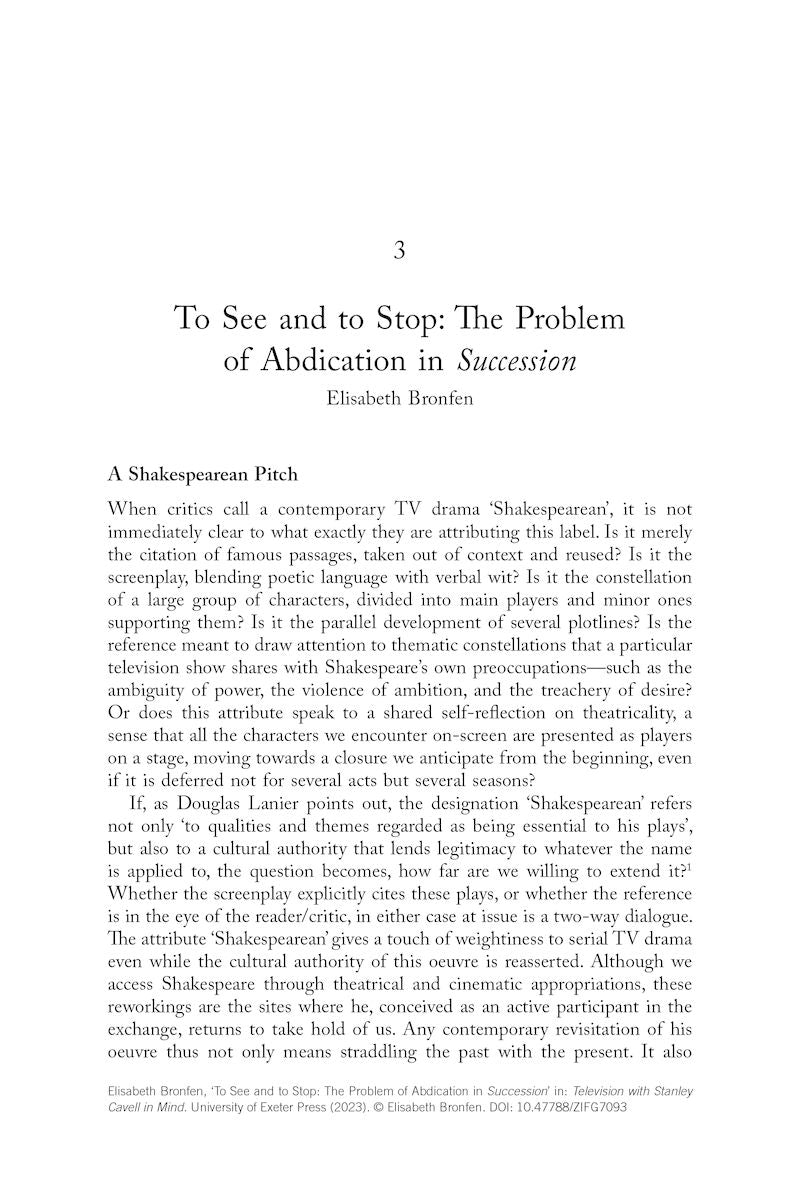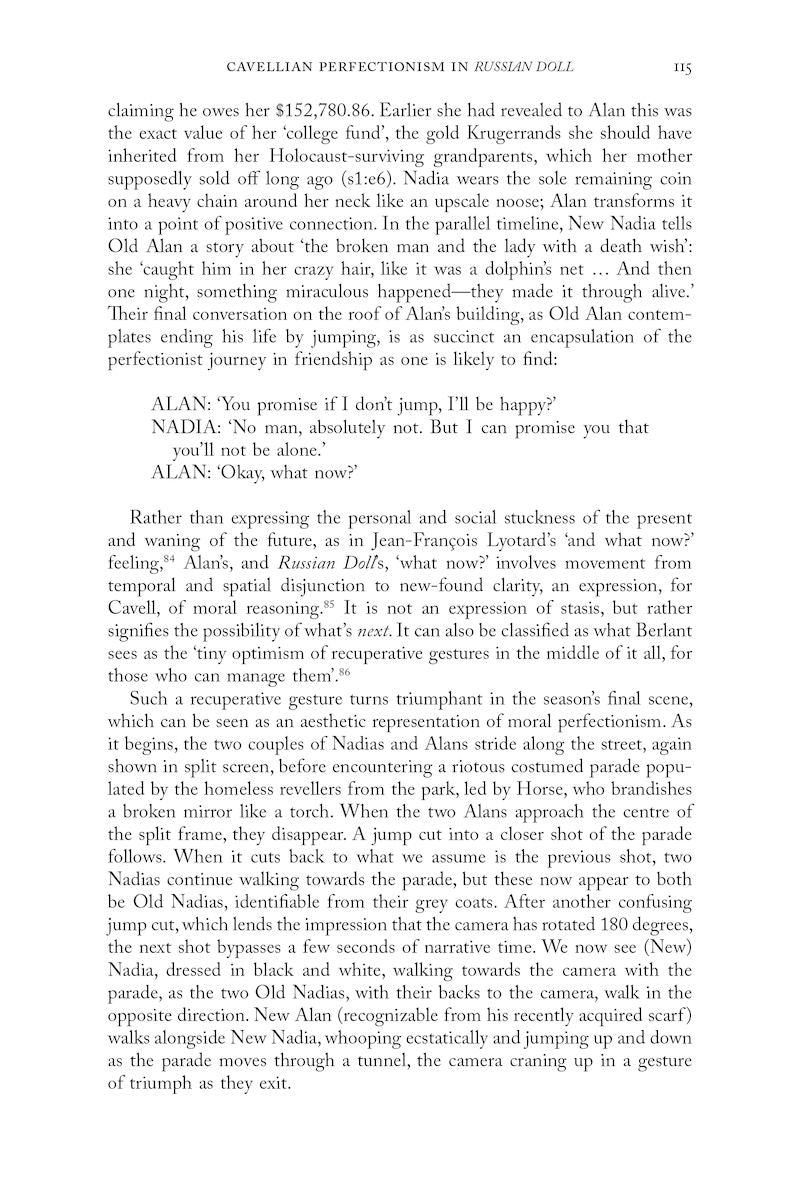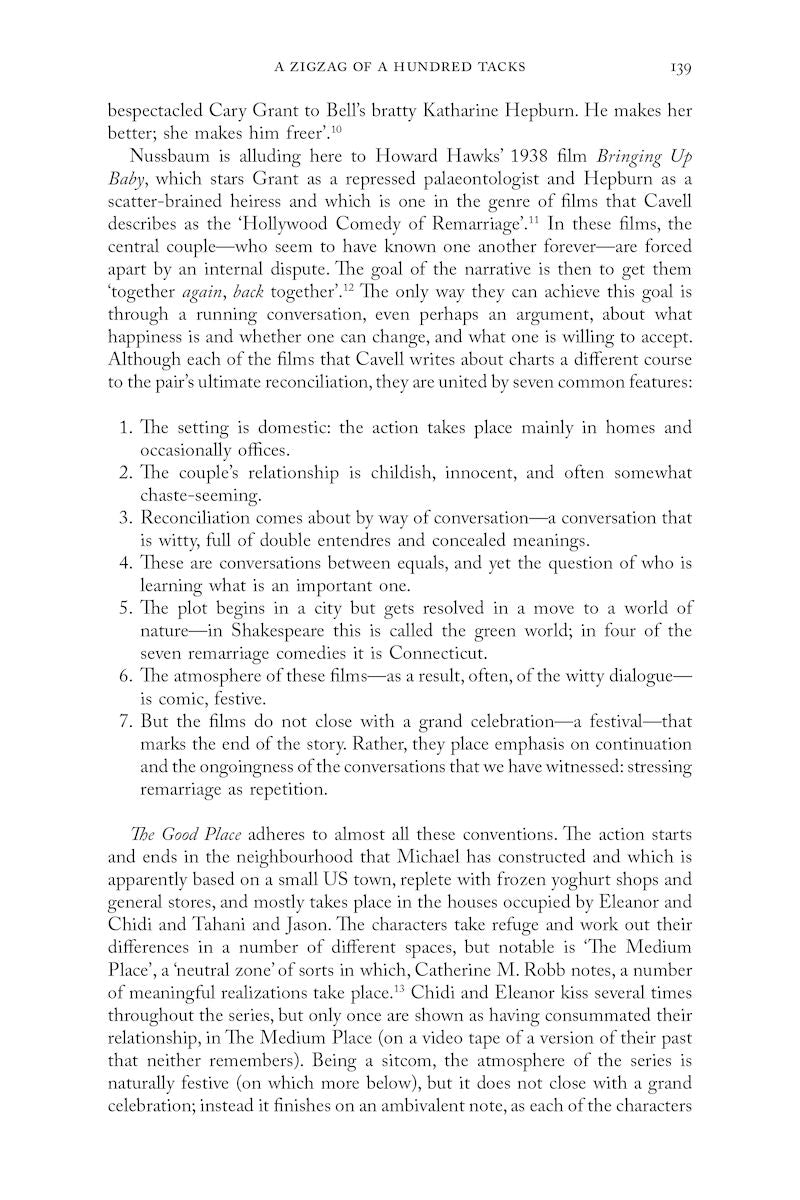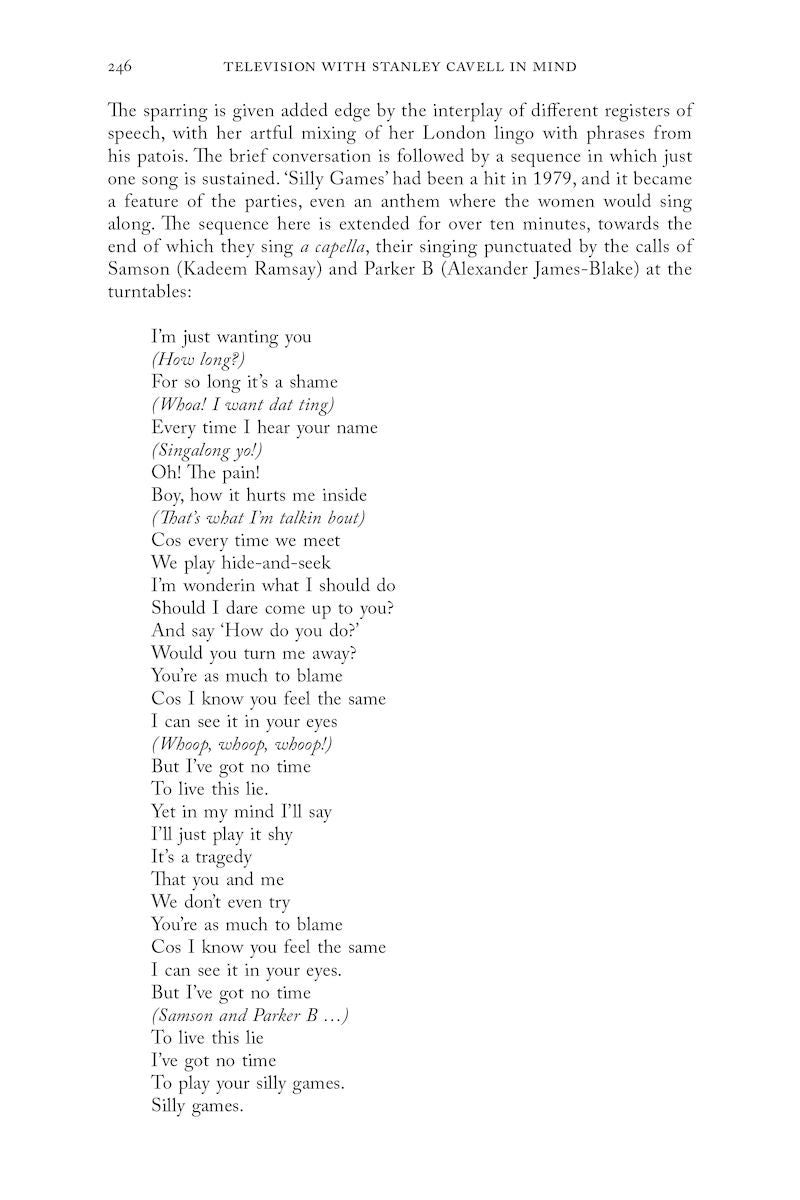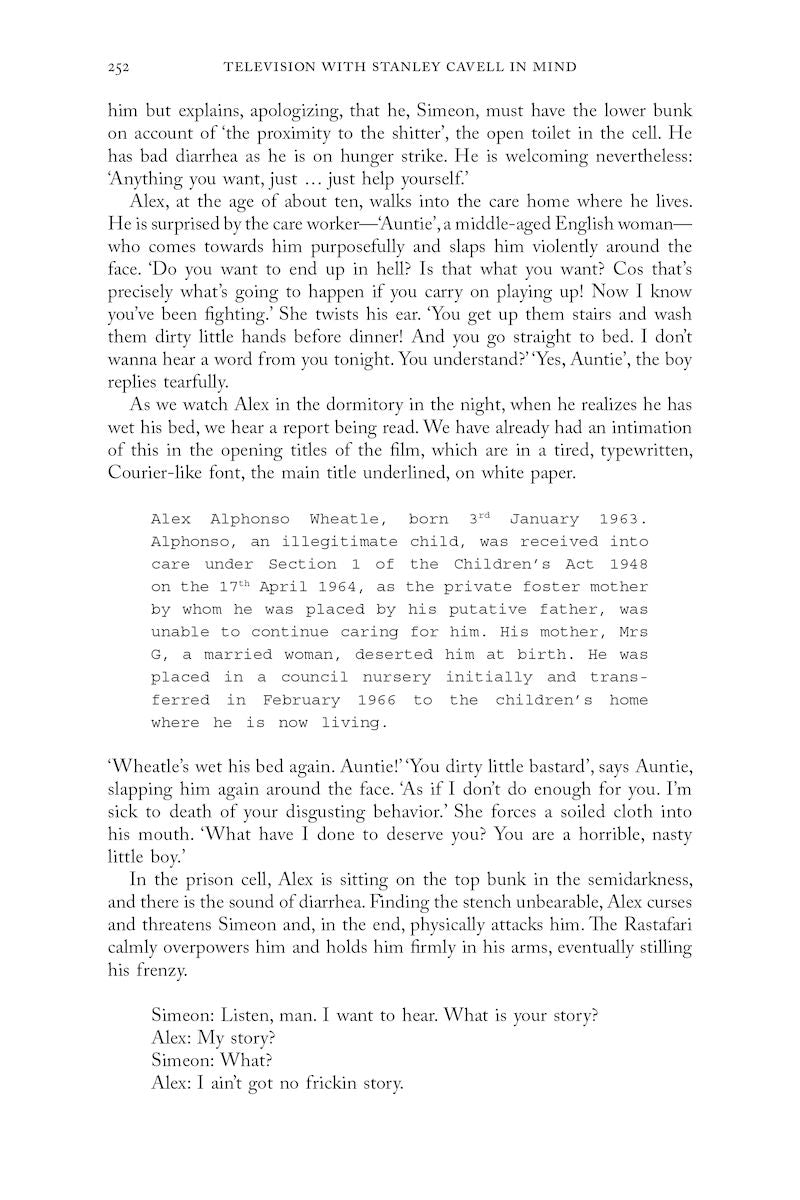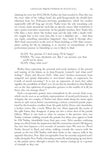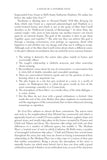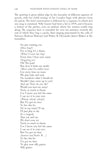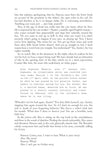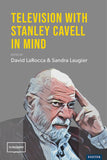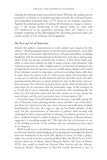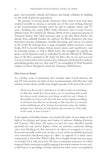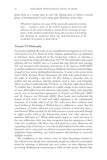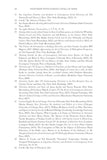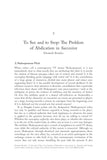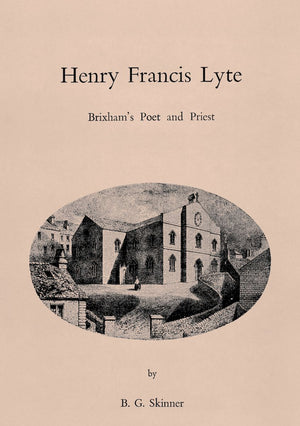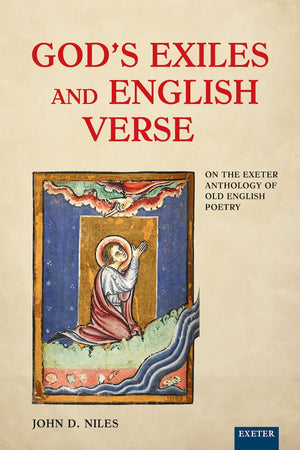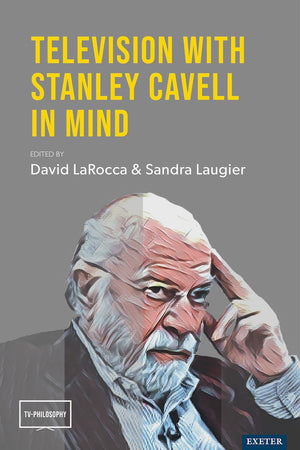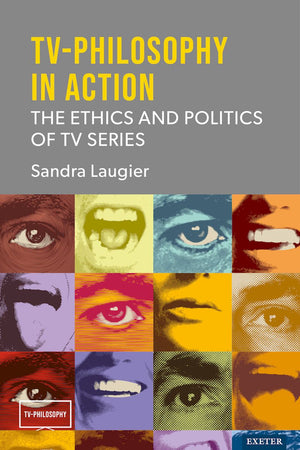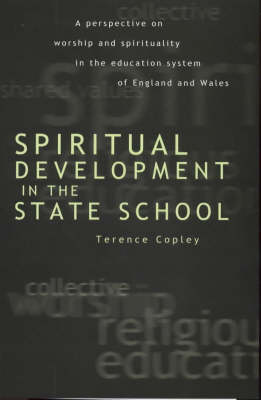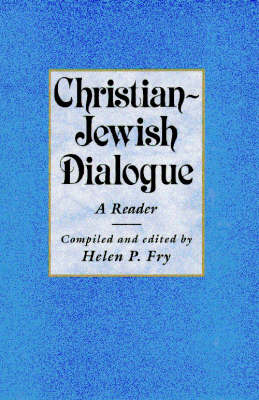- 348 Pages
University of Exeter Press
Television with Stanley Cavell in Mind
- 348 Pages
This collection of new work on the philosophical importance of television starts from a model for reading films proposed by Stanley Cavell, whereby film in its entirety—actors and production included—brings its own intelligence to its realization. In turn, this intelligence educates us as viewers, leading us to recognize and appreciate our individual cinephilic tastes, and to know ourselves and each other better. This reading is even more valid for TV series. Yet, in spite of the progress of film-philosophy, there has been a paucity of concurrent analysis of the ethical stakes, the modes of expressiveness, and the moral education involved in television series. Perhaps most conspicuously, there has been a lack of focus on the experience of the viewer.
Cavell highlighted popular cinema's capacity to create a common culture for millions. This power has become dispersed across other bodies of work and practices, most notably TV series, which have largely appropriated the responsibility of widening the perspectives of their publics, a role once associated with the silver screen. Just as Cavell's reading of films involved moral perfectionism in its intent, this project is also perfectionist, extending a similar aesthetic and ethical method to readings of the small screen. Because TV series are works that are public and thus shared, and often global in reach, they fulfil an educational role—whether intended or not—and one that enables viewers to anchor and appreciate the value of their everyday experiences.
Contributions from: William Rothman, Martin Shuster, Elisabeth Bronfen, Hugo Clémot, David LaRocca, Jeroen Gerrits, Stephen Mulhall, Michelle Devereaux, Thibaut de Saint-Maurice, Hent de Vries, Catherine Wheatley, Byron Davies, Sandra Laugier, Paul Standish, Robert Sinnerbrink.
This landmark collection of essays is an invaluable exploration of Stanley Cavell’s contributions to the study of modern visual media, and a pioneering demonstration of the value of philosophical attention to television in the new era of long form, “prestige,” “cinematic television.” The very “fact” of television, its influence, its pervasiveness, its social function, its aesthetic distinctiveness, its unique relation to the viewer, remains as mysterious today as it was when Cavell began writing about the medium in the nineteen-eighties, and the editors of this volume have done a superb job of collecting and curating work both indebted to Cavell and ground-breaking in their own right.
Robert B. Pippin, Evelyn Stefansson Nef Distinguished Service Professor, The University of Chicago
LaRocca and Laugier have brought together in one book many of the most creative and inspiring voices working on television and popular culture in contemporary philosophy. By taking forward the genius of Cavell’s approach – his emphasis on the work the medium does on us, its capacity to educate our moral sense – this volume charts one of the most exciting and important new directions in the study of TV. In so doing, it also transforms what it means to do philosophy in the present.
Andrew Brandel, Assistant Research Professor and Assistant Director of Jewish Studies, Pennsylvania State University
Television with Stanley Cavell in Mind marks a significant leap forward in philosophical studies of television. The volume answers lingering quibbles about the respectability or intellectual seriousness of the medium by addressing Cavell’s own hopes for the aesthetic possibilities of television. But perhaps even more importantly, by demonstrating through chapter after chapter of incisive commentary and critique the many ways television is “a force for pedagogical and perfectionist possibility” the book puts to rest the idea of these quibbles once and for all. Reading these chapters, no one could imagine that serious philosophical thought or cultural criticism can afford to dismiss a genre so formative for contemporary thought and experience.
Kathryn Reklis, Associate Professor of Theology and Director of Comparative Literature, Fordham University
Introduction: The Fact and Fiction of Television: Stanley Cavell and the Terms of Television Philosophy DAVID LaROCCA and SANDRA LAUGIER
DOI: 10.47788/KRMY5433
PART I: NEW TELEVISION
1. Justifying Justified WILLIAM ROTHMAN
DOI: 10.47788/AGFC4945
2. ‘You Get Paid for Pain’: Kingdom and New Television MARTIN SHUSTER
DOI: 10.47788/LUXS1638
3. To See and to Stop: The Problem of Abdication in Succession ELISABETH BRONFEN
DOI: 10.47788/ZIFG7093
4. When TV is on TV: Metatelevision and the Art of Watching TV with the Royal Family in The Crown DAVID LaROCCA
DOI: 10.47788/WIGS5588
PART II: BIG PERFECTIONISM ON THE SMALL SCREEN
5. It’s My Party and I’ll Die Even If I Don’t Want To: Repetition, Acknowledgment, and Cavellian Perfectionism in Russian Doll MICHELLE DEVEREAUX
DOI: 10.47788/XVUL5590
6. ‘Nobody’s Perfect’: Moral Imperfectionism in Ozark HENT de VRIES
DOI: 10.47788/VCBJ3466
7. A Zigzag of a Hundred Tacks: Narrative Complexity in The Good Place CATHERINE WHEATLEY
DOI: 10.47788/TTNJ9122
8. Im/Moral Perfectionism: On TV’s Two Worlds JEROEN GERRITS
DOI: 10.47788/LPIC1465
PART III: EVERYDAY EDUCATION
9. The Sublime and the American Dream in Fargo HUGO CLÉMOT
DOI: 10.47788/FIVE2115
10. TV Time, Recurrence, and the Situation of the Spectator: An Approach via Stanley Cavell, Raúl Ruiz, and Ruiz’s Late Chilean Series Litoral (2008) BYRON DAVIES
DOI: 10.47788/UUOB5662
11. Education about Trust in Homeland THIBAUT de SAINT MAURICE
DOI: 10.47788/YQZP9599
12. Small Acts PAUL STANDISH
DOI: 10.47788/UWMZ4497
PART IV: POPULAR TV AND ITS GENRES
13. The Event of Television: Sitcoms, Superheroes, and WandaVision STEPHEN MULHALL
DOI: 10.47788/ZDKW6571
14. Love, Remarriage, and The Americans SANDRA LAUGIER
DOI: 10.47788/CWPQ2215
15. True Detective: Existential Scepticism and Television Crime Drama ROBERT SINNERBRINK
DOI: 10.47788/WMOI4740
Index
Couldn't load pickup availability
